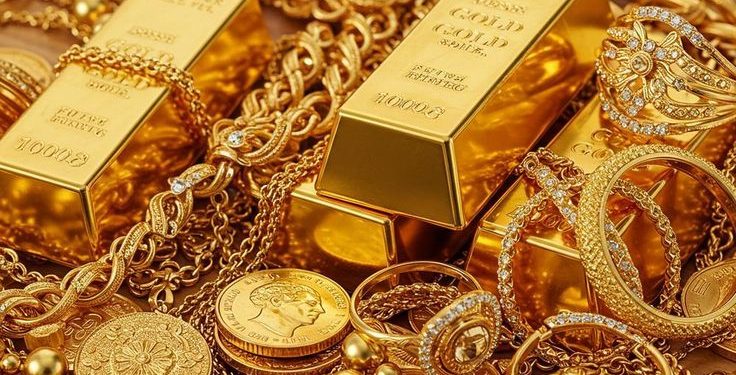Gold has once again captured the world’s attention, shimmering not just as a precious metal but as a symbol of safety in an increasingly uncertain global economy. As of October 13, 2025, the spot price of gold has soared to a record high of $4,078.05 per ounce, settling slightly lower around $4,067.79 in late trading, according to Reuters. In Nigeria, the effect of this surge has been immediate and profound. The price of 24-karat gold now hovers near ₦188,112 per gram, translating to roughly ₦5.86 million per troy ounce, based on current exchange rates.
This remarkable ascent is not accidental. It mirrors a world grappling with persistent inflation, currency devaluation, and geopolitical unease. Investors, weary of the volatility in traditional markets, are returning to gold — the timeless store of value that has weathered centuries of economic storms. As the United States and China lock horns over renewed trade tensions, and central banks across continents prepare to ease monetary policy, gold has emerged as the ultimate refuge for both institutional and individual investors.
In Nigeria, this global trend has rippled through the local economy with distinct consequences. The Naira’s continuing depreciation has magnified the metal’s allure, transforming gold from a luxury commodity into a practical investment tool. For many Nigerians, especially those anxious about inflation’s erosion of their savings, gold is no longer an ornament of prestige. it is a shield against uncertainty. The surge in demand has also revitalized local jewelry markets and small-scale traders who are rediscovering gold’s profitability amid the shifting financial tides.
Yet, the golden glow is not without its shadows. As prices climb, so too do risks. The proliferation of counterfeit gold and substandard purity claims has intensified. Investors must tread carefully, insisting on hallmark certification, verified weights, and reputable dealers. Liquidity can also be a challenge; while global gold markets are deep and active, Nigeria’s local resale channels can be fragmented, often with wide dealer spreads and making charges that eat into profit margins.
Beyond the challenges lies an emerging opportunity for innovation. Fintech firms and local entrepreneurs are beginning to explore gold-backed investment platforms — digital systems that allow Nigerians to buy fractional shares of physical gold securely stored in vaults. Such initiatives could democratize access to the metal, opening investment pathways for young Nigerians who may not have millions to spend on physical bars or jewelry.
The rally in gold prices also sends a broader economic message. It reflects a world increasingly wary of paper wealth and overexposed to debt-driven financial systems. As traditional currencies lose ground to inflation, and as governments expand fiscal deficits, the quest for assets with intrinsic, immutable value intensifies. Gold, in this context, has become more than a hedge — it is a vote of no confidence in monetary instability.
Financial analysts predict that this golden run may not be over. With central banks expected to continue easing interest rates into 2026, the environment remains ripe for gold to climb even higher. Bank of America recently revised its forecast, predicting that gold could reach $5,000 per ounce by 2026, a target that underscores how deeply investors are reassessing the world’s financial landscape.
For Nigeria, this is both a test and an opportunity. The test lies in navigating a complex market vulnerable to fraud and speculative bubbles. The opportunity, however, rests in recognizing gold not merely as a commodity but as a strategic asset. By supporting formalized gold trading, encouraging domestic refining, and integrating digital gold products into the mainstream financial system, Nigeria could turn this global trend into a sustainable economic advantage.
Gold’s rise in 2025 tells a familiar story — one of fear, faith, and foresight. It is fear that drives investors away from volatile currencies and unstable equities; faith in gold’s enduring worth that brings them back; and foresight that allows those who act early to benefit most. Whether the current surge proves temporary or becomes a new normal, one truth remains clear: gold has reclaimed its crown as the world’s most trusted refuge, and Nigeria’s investors are paying attention.
























































